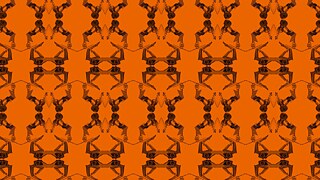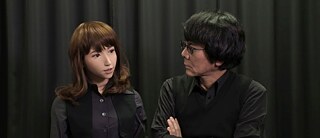“Reality is catching up to science fiction”: An interview with Hiroshi Ishiguro
For decades, movies have depicted fantastical visions of life in the future which are now coming within our reach. Robotics researcher Hiroshi Ishiguro says he is excited about one of his robots starring in an upcoming science fiction film.
Hiroshi Ishiguro made heads turn worldwide when he unveiled ERICA, an autonomous conversational android who looks and sounds like a young woman. She currently works as a receptionist at a research institute in Japan, but can now add actress to her resume, after it was announced earlier this year she would be starring in the upcoming Hollywood science fiction film entitled b.
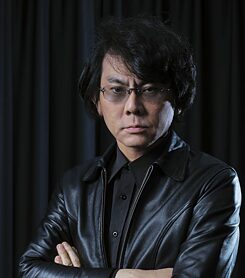 Hiroshi Ishiguro
| © Hiroshi Ishiguro
Hiroshi Ishiguro
| © Hiroshi Ishiguro
Ishiguro, director of the Intelligent Robotics Laboratory at Osaka University, spoke with the Goethe-Institut about how far science has come in creating an intelligent robot and what ERICA’s role in movies means for society.
It has been five years since you first introduced ERICA to the world. What have you and your team been able to achieve so far?
At the Advanced Telecommunications Research Institute International in Kyoto, where ERICA is a receptionist, she can now speak to a new visitor for up to 10 minutes, and has 150 conversation topics to pick from. I believe she can speak to a stranger better than most of us can.
We did an experiment, a multimodal Turing test, where you ask someone to talk to a robot, and later ask them whether they thought they just spoke to a robot, or a robot being controlled by a human inside. We did this test on 11 people, asked them to talk to ERICA, and three people said they were absolutely certain they had just spoken to a real person.
So do you think ERICA has a heart, or perhaps, better said, a soul?
I actually think of ERICA as an object. Maybe I’m different. I have my own android copy, and I may be used to studying androids. I would rather put my effort into studying how androids work as opposed to putting all of my effort into building one. But I do think that the researchers working on ERICA at ATR, who continue to improve her to become more human-like, they would look at her like they were raising a child.
Do people outside of Japan react differently to ERICA when they see her?
No, their reaction is the same, but what they say is different. What I mean is that people have different educational backgrounds and cultural backgrounds, which makes their logical reaction different. Particularly Germans, who categorise things in a way that keeps humans as humans, and robots as robots. Maybe not researchers, but I do think that Europeans tend to put a lot of importance on human dignity. To me, no one knows what dignity is, but they believe it is something humans have.
My own understanding is that Europeans needed to develop a way to tell people apart. Being surrounded by other countries, going to war with them, being invaded, it was necessary to identify what were humans, enemies or objects.
Congratulations on ERICA’s upcoming role in “b”. Do you watch much science fiction yourself?
I’m a Star Trek fan. I like how each episode is a story that can stand on its own. Each is a thought experiment of its own. I don’t get bored watching it.
What do you make of science fiction films today?
I feel like reality is catching up to the science fiction. In the old days, you’d see a science fiction film and think, ‘wow, that’s what the future is going to be like.’ There was imagination and reality. Now the two have been getting closer and closer, the human stories are more important than the futuristic component.
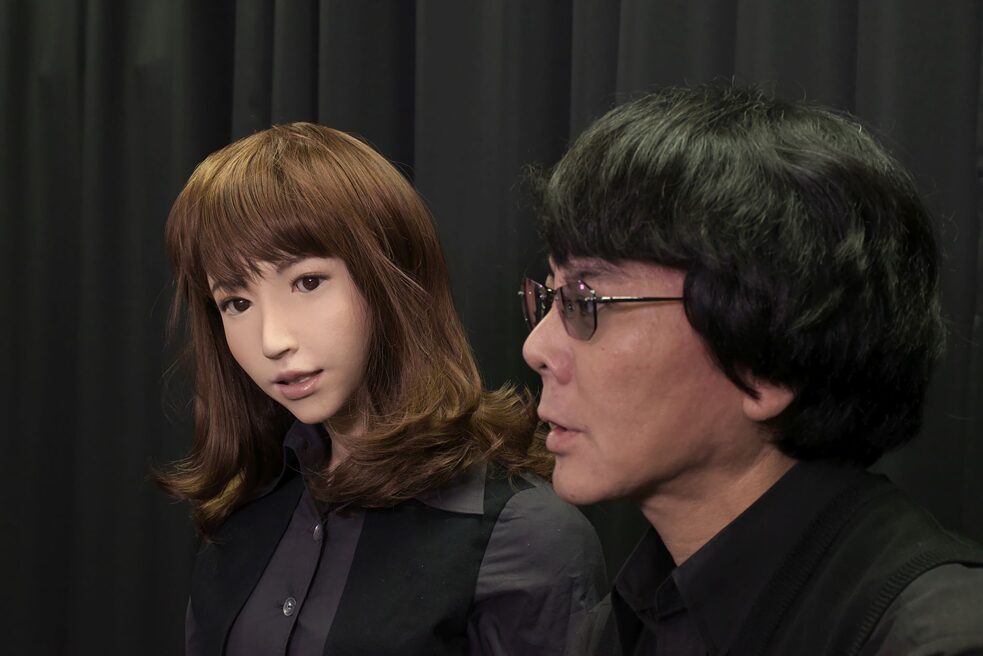 ERICA can hold conversations in a variety of topic areas, if spoken to the right way
| Photo: JST ERATO Ishiguro Symbiotic Human Robot Interaction Project
How do you feel about ERICA being used in a movie?
ERICA can hold conversations in a variety of topic areas, if spoken to the right way
| Photo: JST ERATO Ishiguro Symbiotic Human Robot Interaction Project
How do you feel about ERICA being used in a movie?
I feel honoured that my research is being used in a film. It’s usually backwards. First you have the movie, which in turn inspires the science and technology research. But when the research inspires the movie, it means you’re building a future that has already surpassed science fiction. It means you as a researcher had the imagination to build something that is now inspiring a movie. I feel like my research is getting recognition.
ERICA is a conversational robot who is capable of talking to visitors in a specific work environment, how will she act in a film?
ERICA will not be acting. She is the main character, but she won’t be in every shot. She will act as the origin of the film. The gap between science and technology and science fiction is closing together. So the future that we’ve envisioned is within reach. The film will be used in a way to get people to think about what sort of future we want. It’s not just entertainment. It’s a thought experiment. It examines what it would be like to live in a future where humans live alongside robots.
What do you hope to gain from this film project?
I hope to get hints about robot design. To be honest, this is a simulation of the future. There will be things that make people think that they want that, or they don’t like that. It’s an opportunity to see what things would look like, and think about what you would do to create a better robot, or make a better society.
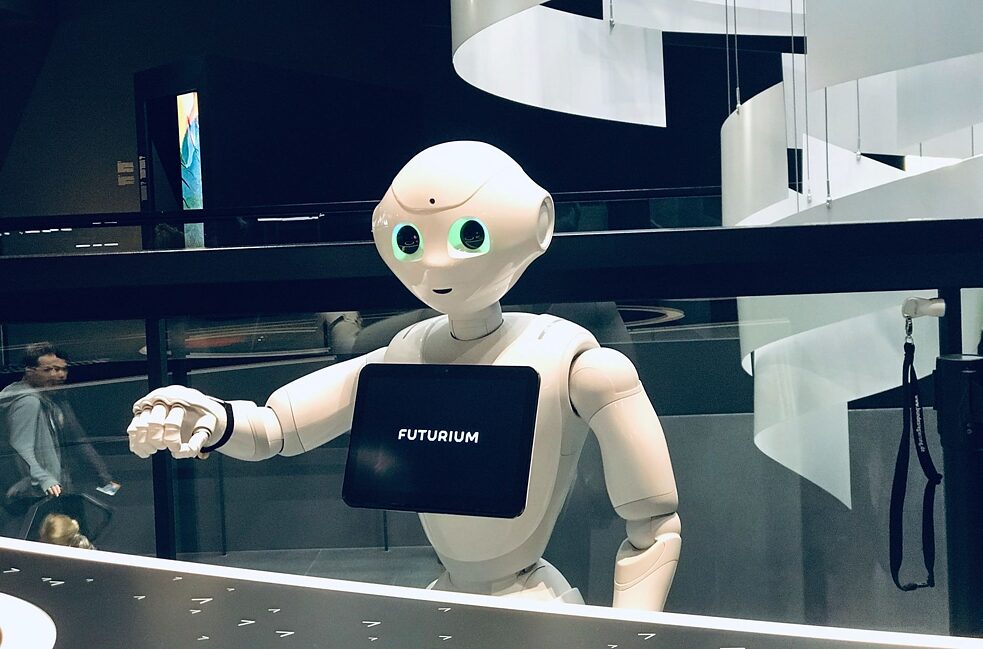 Robots have become more human-like since Pepper was invented in 2014
| Credit: Fitore F / Unsplash
If ERICA’s human co-stars have rights to ensure a good working environment, does that mean that we need to give robots rights as well?
Robots have become more human-like since Pepper was invented in 2014
| Credit: Fitore F / Unsplash
If ERICA’s human co-stars have rights to ensure a good working environment, does that mean that we need to give robots rights as well?
The child robots that are on display at the Miraikan museum (in Tokyo) are registered to a talent agency. So, technically they are employees working at the museum. ERICA already has somebody representing her in the US, and has already signed an agreement with AI LIFE Inc. I do think that robots deserve rights and there are research projects being carried out today that are looking at robot laws.
African-American slaves were given rights when slavery was abolished and they became part of society. Think of animals too - none of them had rights in the beginning but now animal rights are the norm. So if robots can interact with humans, they too should be given rights.
However, the situation in which robots can interact with people is limited. So I would imagine that if some sort of rights would be given to ERICA, it would be given according to the specific working conditions she is placed under during this film.
Learn more about Hiroshi Ishiguro and Motoko Kakubayashi on our network page.
 Hiroshi Ishiguro
| © Hiroshi Ishiguro
Hiroshi Ishiguro
| © Hiroshi Ishiguro
Ishiguro, director of the Intelligent Robotics Laboratory at Osaka University, spoke with the Goethe-Institut about how far science has come in creating an intelligent robot and what ERICA’s role in movies means for society.
It has been five years since you first introduced ERICA to the world. What have you and your team been able to achieve so far?
At the Advanced Telecommunications Research Institute International in Kyoto, where ERICA is a receptionist, she can now speak to a new visitor for up to 10 minutes, and has 150 conversation topics to pick from. I believe she can speak to a stranger better than most of us can.
We did an experiment, a multimodal Turing test, where you ask someone to talk to a robot, and later ask them whether they thought they just spoke to a robot, or a robot being controlled by a human inside. We did this test on 11 people, asked them to talk to ERICA, and three people said they were absolutely certain they had just spoken to a real person.
So do you think ERICA has a heart, or perhaps, better said, a soul?
I actually think of ERICA as an object. Maybe I’m different. I have my own android copy, and I may be used to studying androids. I would rather put my effort into studying how androids work as opposed to putting all of my effort into building one. But I do think that the researchers working on ERICA at ATR, who continue to improve her to become more human-like, they would look at her like they were raising a child.
Do people outside of Japan react differently to ERICA when they see her?
No, their reaction is the same, but what they say is different. What I mean is that people have different educational backgrounds and cultural backgrounds, which makes their logical reaction different. Particularly Germans, who categorise things in a way that keeps humans as humans, and robots as robots. Maybe not researchers, but I do think that Europeans tend to put a lot of importance on human dignity. To me, no one knows what dignity is, but they believe it is something humans have.
My own understanding is that Europeans needed to develop a way to tell people apart. Being surrounded by other countries, going to war with them, being invaded, it was necessary to identify what were humans, enemies or objects.
Congratulations on ERICA’s upcoming role in “b”. Do you watch much science fiction yourself?
I’m a Star Trek fan. I like how each episode is a story that can stand on its own. Each is a thought experiment of its own. I don’t get bored watching it.
What do you make of science fiction films today?
I feel like reality is catching up to the science fiction. In the old days, you’d see a science fiction film and think, ‘wow, that’s what the future is going to be like.’ There was imagination and reality. Now the two have been getting closer and closer, the human stories are more important than the futuristic component.
 ERICA can hold conversations in a variety of topic areas, if spoken to the right way
| Photo: JST ERATO Ishiguro Symbiotic Human Robot Interaction Project
How do you feel about ERICA being used in a movie?
ERICA can hold conversations in a variety of topic areas, if spoken to the right way
| Photo: JST ERATO Ishiguro Symbiotic Human Robot Interaction Project
How do you feel about ERICA being used in a movie?I feel honoured that my research is being used in a film. It’s usually backwards. First you have the movie, which in turn inspires the science and technology research. But when the research inspires the movie, it means you’re building a future that has already surpassed science fiction. It means you as a researcher had the imagination to build something that is now inspiring a movie. I feel like my research is getting recognition.
ERICA is a conversational robot who is capable of talking to visitors in a specific work environment, how will she act in a film?
ERICA will not be acting. She is the main character, but she won’t be in every shot. She will act as the origin of the film. The gap between science and technology and science fiction is closing together. So the future that we’ve envisioned is within reach. The film will be used in a way to get people to think about what sort of future we want. It’s not just entertainment. It’s a thought experiment. It examines what it would be like to live in a future where humans live alongside robots.
What do you hope to gain from this film project?
I hope to get hints about robot design. To be honest, this is a simulation of the future. There will be things that make people think that they want that, or they don’t like that. It’s an opportunity to see what things would look like, and think about what you would do to create a better robot, or make a better society.
 Robots have become more human-like since Pepper was invented in 2014
| Credit: Fitore F / Unsplash
If ERICA’s human co-stars have rights to ensure a good working environment, does that mean that we need to give robots rights as well?
Robots have become more human-like since Pepper was invented in 2014
| Credit: Fitore F / Unsplash
If ERICA’s human co-stars have rights to ensure a good working environment, does that mean that we need to give robots rights as well?The child robots that are on display at the Miraikan museum (in Tokyo) are registered to a talent agency. So, technically they are employees working at the museum. ERICA already has somebody representing her in the US, and has already signed an agreement with AI LIFE Inc. I do think that robots deserve rights and there are research projects being carried out today that are looking at robot laws.
African-American slaves were given rights when slavery was abolished and they became part of society. Think of animals too - none of them had rights in the beginning but now animal rights are the norm. So if robots can interact with humans, they too should be given rights.
However, the situation in which robots can interact with people is limited. So I would imagine that if some sort of rights would be given to ERICA, it would be given according to the specific working conditions she is placed under during this film.
Learn more about Hiroshi Ishiguro and Motoko Kakubayashi on our network page.
